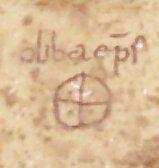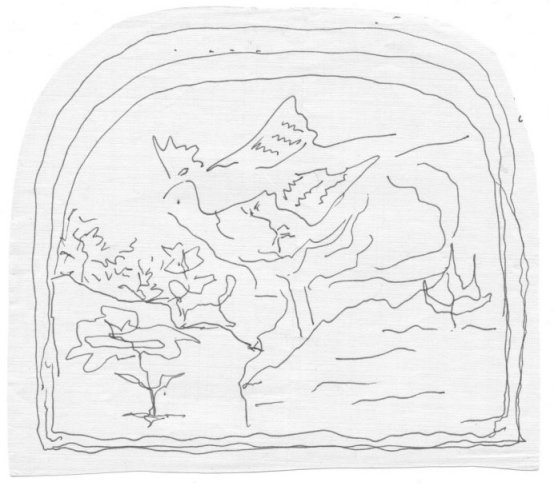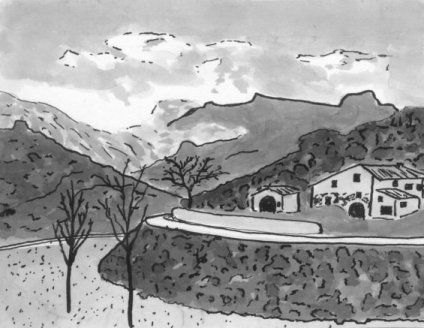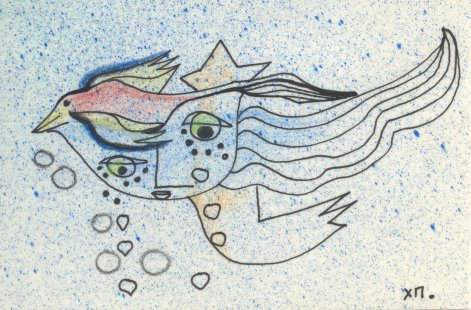Prehistory
Oh, and I wanted to tell you:
I had seven wet nurses.
That's no lie.
Years later my mother told me about it:
"Yes, Juan, it's true.
We suffered long with you.
What bad luck!"
The first one's spring dried up.
Watery substances flowed
from the second and the fourth.
The third received, on the sly at night,
her lover, a false nurse's-husband, a bully
(she was a habitual drunkard;
and it's well known that the wine
that the nurse gulps down,
after a mere half hour,
can pass without harm
into the tot's supper, spirits and all).
The fifth, an underage, unmarried mother,
was reclaimed by her parents
(a nurse-dealer had conned her and
with him she had run away from home
and from the bad treatment
inherent in her illicit state).
And the sixth one
— my mother pondered:
"Really, she was gorgeous!" —
died of galloping pneumonia.
Finally the seventh, a real find:
healthy, loving, long-suffering,
precisely a subsidiary mother
(and one day — I had gone to
military training camp,
one meter eighty-four,
completely weaned —
she came to see me, from far away,
a dried up little woman, tanned skin;
and, eyes melting with tears,
gluttonously pawed me).
Nearly all Gallicians,
bean-fed maidens
— oh, tempermental! —
seduced by the master, or his son,
or else by the town rector
— mothers of possible (Saint) Rosalias.
An uncle of mine, seminarian,
would call at me mockingly:
"Seven live nurses — like a cat!"
And I ask myself now:
such a mixture,
sucking and slurping in divers fountains,
passing from hand to hand to arm to lap,
in so many rosy cushions of elastic meat,
can't that destine one to be a
dabbling pot-taster ?
What, gentlemen, does psychoanalysis have to say?
But there's another circumstance,
and I should mention it.
During one of the more unexpected intervals
between two pairs of orthodox teats,
I was nourished, two months,
— doctor's prescription — by burro's milk,
that which most resembles woman's, so it seems
(another datum from my prehistoric past
which still unnerves me).
So, I was milk-brother
to more than one or two
long-eared quadrupeds
and maybe kickers at that?
Should I be ashamed,
develop a complex?
Should I lodge a complaint ?
Can it have something to do
with the Franciscanism
&mdash lesser, I admit —
which has always surrounded me
and still surrounds me?
|
Prehistoria (1968)
També us volia dir:
jo vaig tenir set dides.
No us enganyo.
Passats els anys la mare m'ho contava:
Si, Juan, t'ho pots ben creure.
Vam patir força amb tu.
Quina tongada!
A la primera se li estroncà la deu.
Tant la segona com la quarta
adollaven substàncies aigualides.
La tercera rebia, d'amagat i de nit,
el seu amant, un didot ful, un pinxo
(borratxa consueta;
i és sabut que el vi
que engoleix la nodrissa,
al cap de mitja horeta,
ja pot passar sense destorb
a l'apat del ninó, amb esprit i tot).
La cinquena, menor, mare soltera,
fou reclamada pels seus pares
(l'entabanà un tractant de dides
i amb ell fugí de casa seva
i dels mals tractes
inherents al seu estat il.lícit).
I la que feia sis
--la mare ponderava:
"Per cert que era guapíssima!"--
morí de pulmonia galopant.
Finalment la setena, una troballa:
sana, amorosa, patidora,
justament una mare subsidiària
(i un dia -- jo acabava d'entrar en quintes,
metre vuitenta-quatre
doncs deslletat del tot --,
em vingué a veure, de molt lluny,
una dona eixuta, pell rostida;
i, els ulls fosos en llàgrimes,
goludament em grapejava).
Quasi totes gallegues,
donzelles enfavades
--o tempermentals!--,
sedüides per l'amo, el fill de l'amo
o tal vegada pel rector del poble
--maretes de possibles rosalías.
Un oncle meu, seminarista i bútxera,
em cridava amb mofa:
"Set dides com els gats!"
I jo em pregunto, ara:
tanta barreja,
tantes xuclades i xarrups en fonts diverses,
passar de tantes mans, braços i faldes,
per tants coixins rosats de carn elàstica,
no pot marcar un destí de tastaolletes?
Què hi diu, senyors, la psicoanàlisi?
Però hi un altre circumstància,
i cal parlar-ne.
En una de les pauses més sobtades
entre dos jocs de metes ortodoxes,
vaig ser nodrit, dos mesos
--prescripció del metge--, amb llet de burra,
la mes afí a la de dona, sembla
(heus aquí una altre dada del meu passat prehistoric
que encara m'inquieta).
?He estat, així, germà de llet
de més d'un i de dos
orelluts quadrúpedes
i per afegidura potser guits?
?N'hi ha per a avergonyir-se'n?
O potser per a reivindicar-ho?
?Pot tenir el fet quelcom a veure
amb el franciscanisme
--menor, ho reconec--
que sempre m'ha rondat
i encara em ronda?
|




